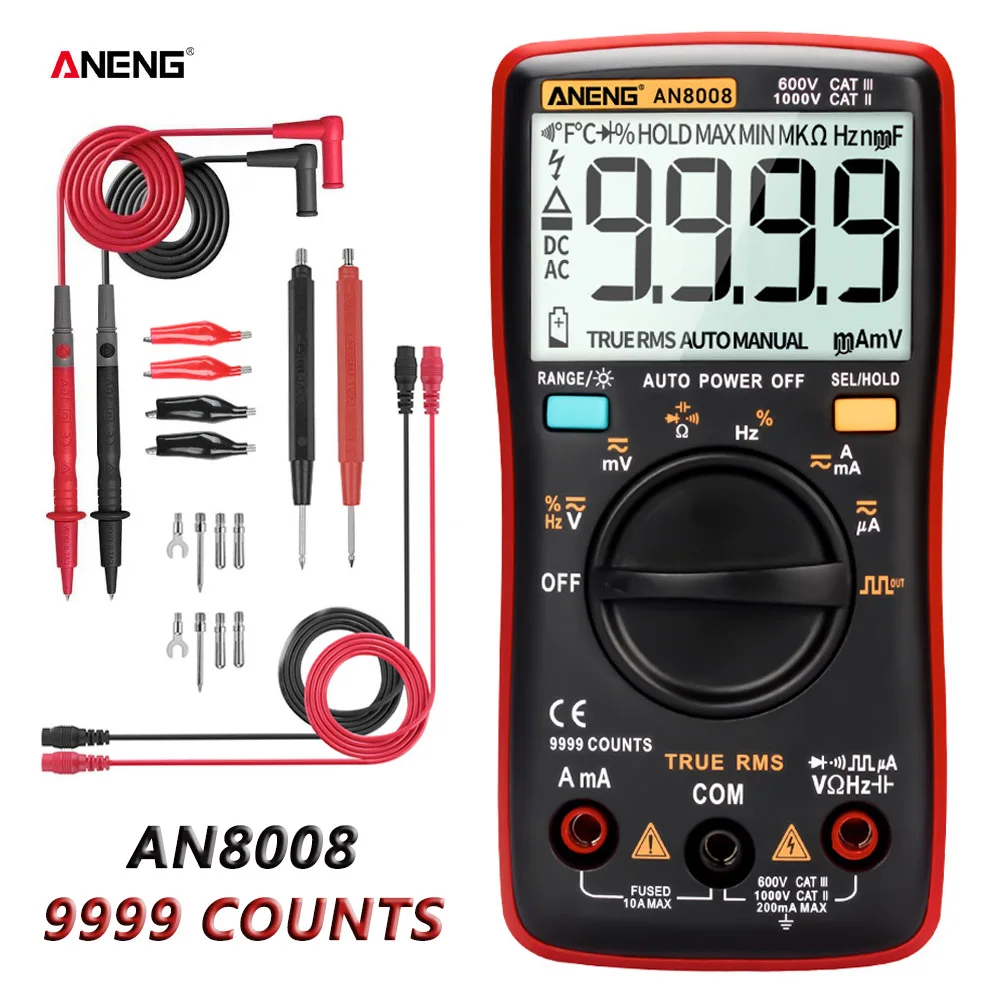Auto-ranging is a must have for me. I grew up without it and left those days behind!
I’ve been using the
Fluke 101 and feel it’s a nice option.
I also use the Fluke 101 multimeter. I think it is a very nice tool, but I probably wouldn't buy it again. I have since learned that it is missing features I would like to have, and it is really a bit pricy for what it offers. It doesn't take measurements of amperage for some reason, and it doesn't beep when taking readings in diode mode. At the time I bought it, I had no idea that these would be useful features to me, but as I've learned more about electronics troubleshooting over the last few years, I now wish I had the functionality.
I think that an auto-ranging multimeter is just more convenient. I like that I don't need to worry about picking voltage ranges and that I can just set it to DC mode and start probing right away. I can't think of any reason I wouldn't get an auto-ranging meter aside from the slightly higher price. I have compared the auto measurements against my manual meter, and they are almost always the same.
What I didn't think of at the time I was purchasing multimeters was to check electronics-specific stores with a more curated selection. I was browsing Amazon and getting overwhelmed, and having trouble finding any good reviews online. For some reason, I had convinced myself that the only suitable multimeter would be a Fluke, but in hindsight, I'm sure I would have gotten a better deal/product had I purchased from another brand, rather than buying the absolute cheapest of Fluke's offerings. I think I'm happy overall with my current multimeter, but I could have spent less money for one with similar functionality, or the same amount of money for a model with more features.
Here are some places I would look at if I were buying a multimeter today:
Smarter Shopping, Better Living! Aliexpress.com

www.aliexpress.com
Discontinued - you can grab this Digital Multimeter - Model 9205B+ instead!If you're looking for one of the best multimeters, we're proud to now offer our personal ...

www.adafruit.com
Of course, I haven't personally used any of these products, but I think that the EEVBlog is a good place to seek out recommendations for multimeters, and I have been impressed by the Northridgefix repair videos on YouTube for the last year or so, and they only sell what the repair tech actually uses.
I'm curious what other multimeters people use -does anyone have experience with these models and have opinions about them?


